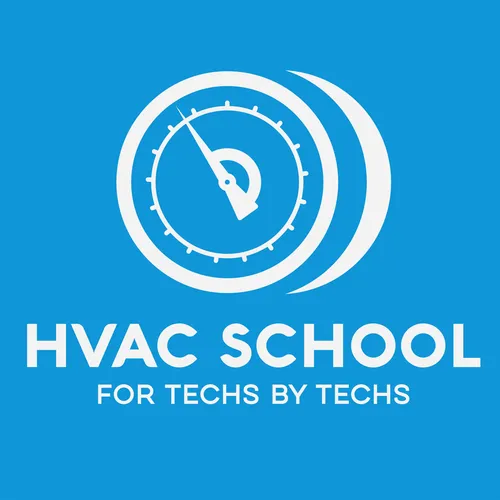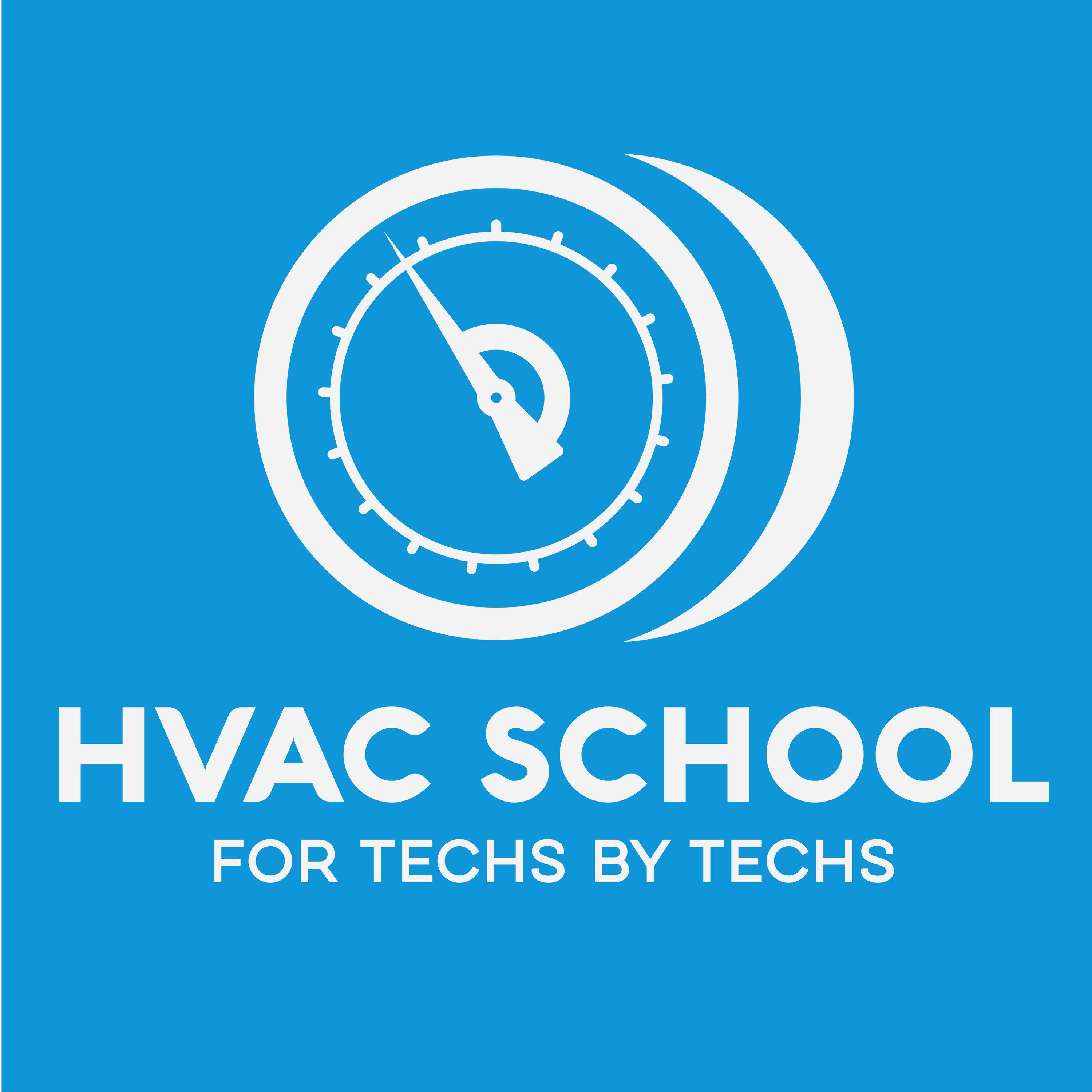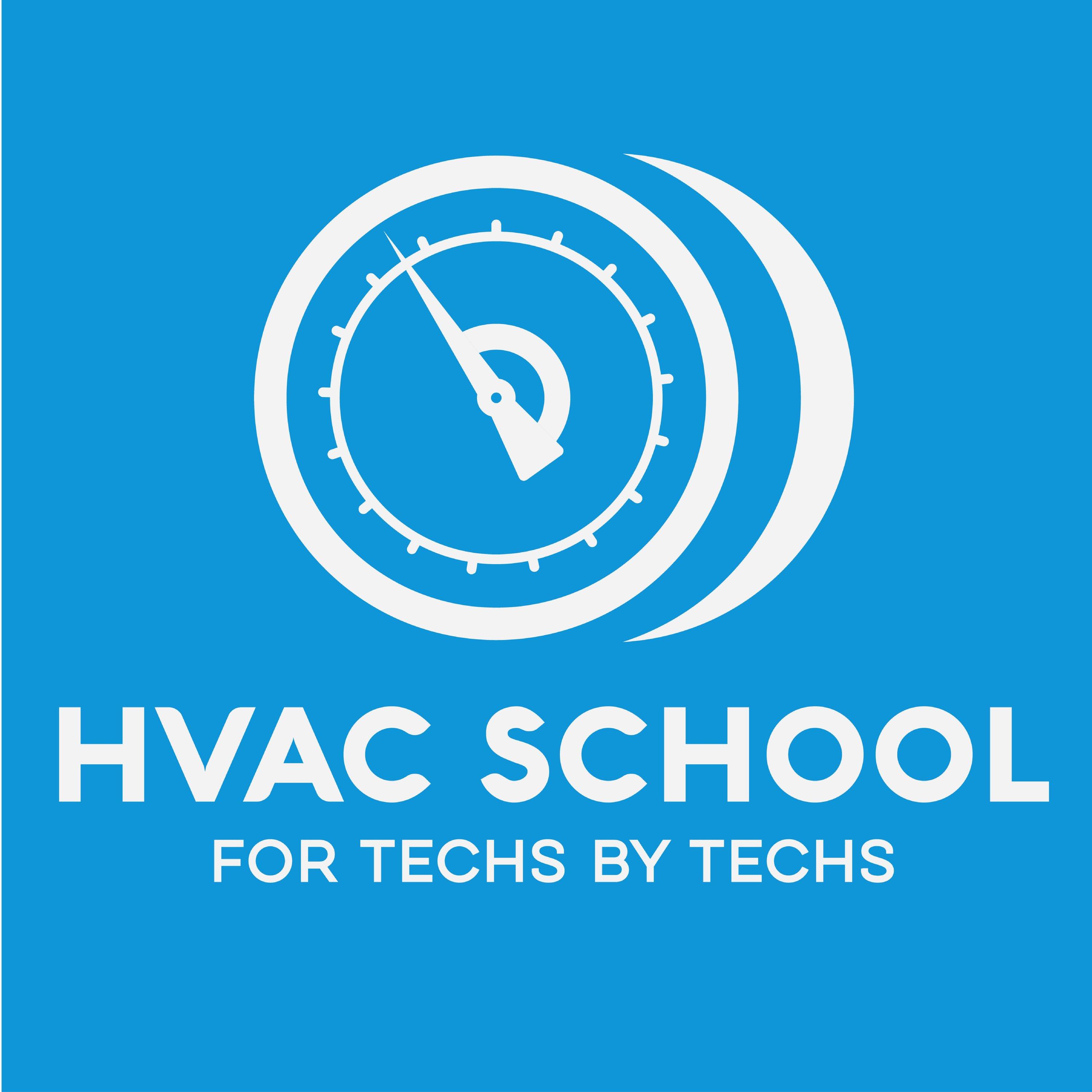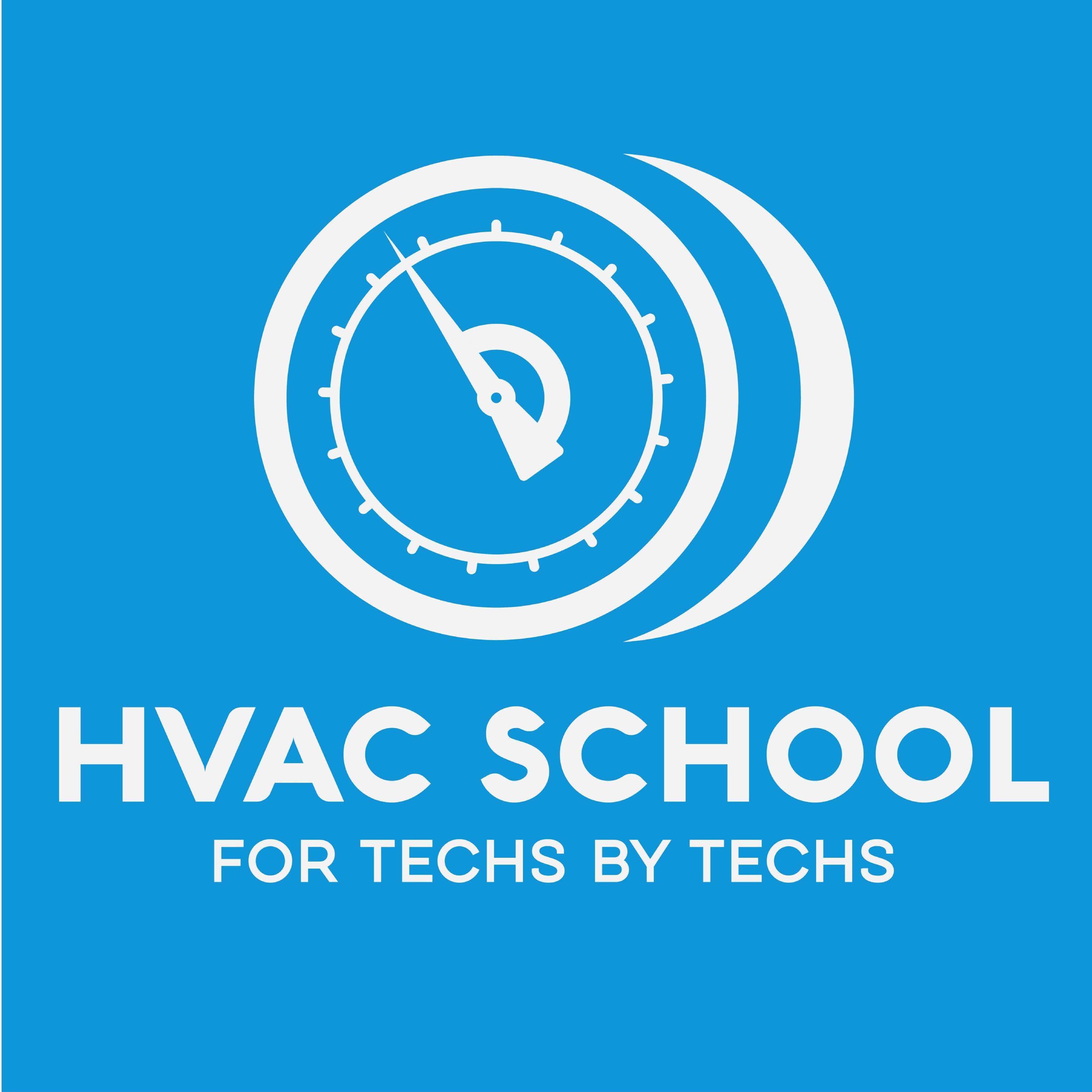
HVAC School - For Techs, By Techs
Real training for HVAC ( Heating, Ventilation, Air Conditioning and Refrigeration) Technicians. Including recorded tech training, interviews, diagnostics and general conversations about the trade.
- Update frequency
- every 3 days
- Average duration
- 34 minutes
- Episodes
- 838
- Years Active
- 2016 - 2025

Why CO2 Matters w/ Trevor Matthews
Trevor Matthews, the founder of Refrigeration Mentor, returns to the podcast to talk about why CO2 matters in commercial refrigeration and even HVAC applications.
CO2 (R-744) has entered the resident…

Electrical Basics
This podcast is Bryan’s full-length electrical basics class for the Kalos technicians. He covers electrical theory and circuit basics.
Volts, resistance, and amps all affect the behavior of electrici…

Myth: Path of Least Resistance - Short #154
In this short podcast, Bryan debunks the myth that electricity only takes the path of least resistance.
It is true that more current will typically take paths of lower resistance; it’s much easier fo…

Dehumidification in Shoulder Seasons w/ Nikki
Nikki Krueger from Santa Fe Dehumidifiers returns to the podcast to talk about dehumidification equipment and strategies in the shoulder seasons (spring and fall). The shoulder seasons (and the weeks…

Time Management - Short #153
In this short podcast episode, Bryan gives some quick tips for time management. You can save a lot of time by prioritizing what really matters and delegating tasks.
One of the simplest but most effec…

Become a Better Mentor w/ Eric Kaiser
Eric Kaiser returns to the podcast to talk about how to become a better mentor. He explains the topic from the perspective of a mentor and a mentee.
The goal of mentorship is to pass your knowledge o…

HVAC Measurement Types and Benefits
Eric Kaiser joins the HVAC School podcast to talk about HVAC measurement types and the benefits of taking each one. He also talks about point measurements and data trends.
Point measurements include …

Ventilation and 62.2 Intro & Rant w/ Genry Garcia
Genry Garcia joins the podcast to give an intro to ASHRAE Standard 62.2. He and Bryan also share a nice rant about accountability in HVAC design. Standard 62.2 is the ventilation standard for low-ris…

Pressure Enthalpy without Tears
RACT manual co-author Eugene Silberstein joins the podcast to talk about the titular topic of his book, Pressure Enthalpy Without Tears.
Pressure Enthalpy Without Tears is a book that introduces eng…

Total Heat of Rejection - Short #152
In this short podcast, Bryan talks about THOR, total heat of rejection. He explains what it is and why we should care about it when working on HVAC/R systems. THOR is another aspect of pressure-entha…

Hard Start vs. Easy Start
Matteo Giovanetti from Micro-Air joins the HVAC School podcast to talk about the differences between a hard start and an EasyStart.
Micro-Air’s “EasyStart” provides a soft start rather than a hard st…

Heat of Compression - Short #151
In this short podcast, Bryan explains what the heat of compression is and why we should care about it as HVAC/R professionals.
More heat is rejected in the condenser than absorbed in the evaporator c…

Intro to ACCA Manual T
Ed Janowiak joins the podcast to introduce us to ACCA Manual T.
Compared to other manuals, Manual T is one of the least-considered ACCA manuals. However, it’s the manual that advises us on how not to…

Net Refrigeration Effect - Short #150
In this short podcast, Bryan explains what the net refrigeration effect (NRE) is and how it affects HVAC systems.
The net refrigeration effect (NRE) is what happens in the evaporator coil. The evapor…

Systems Thinking - Gas and Combustion
Eric Kaiser returns to the podcast to talk about how we can use systems thinking to approach gas appliances and combustion in HVAC installation and service.
Gas lines can be made of a few different m…

HVAC School Admin Discussion - Moderating a Successful Community
Some admins from the HVAC School Facebook group join the podcast to discuss the art of moderating a successful community. Bryan is joined by Eric Kaiser, Ty Branaman, Michael Housh, and Neil Comparet…

Systems Thinking - HV / LV / Condensate
Eric Kaiser returns to the podcast to discuss high-voltage wiring, low-voltage wiring, and condensate assemblies as they relate to systems thinking.
On the high-voltage side, the disconnect should be…

Systems Thinking - Copper & Line sets
Eric Kaiser returns to the podcast to talk about how copper, piping, and line sets play into systems thinking.
Nowadays, we have to think about POE and PVE oil, and we need to design line sets in a w…

Systems Thinking In HVAC w/ Eric K
Eric Kaiser joins the podcast to talk about systems thinking in HVAC. Systems thinking allows us to solve problems and address customers’ comfort holistically instead of focusing on just the equipmen…

Logical Fallacies - False Cause & Strawman
Nathan Orr joins Bryan to talk about some logical fallacies, namely the false cause and strawman. They explain how those fallacies show up in the trade.
It’s difficult to present arguments without us…